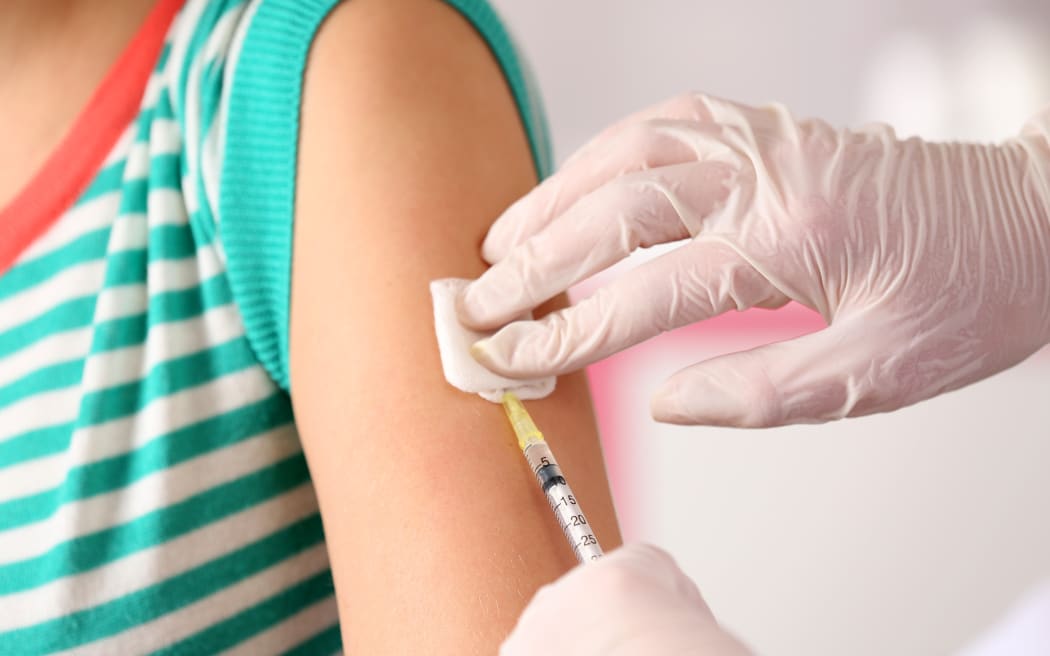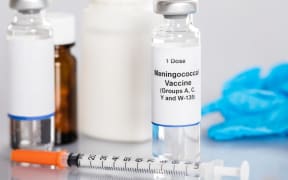
Too shallow a needle could lessen the immune response of obese people to some vaccines. Photo: 123RF
Nearly half of obese adults may be missing out on effective vaccine delivery using a standard 25mm needle, Medical Research Institute of New Zealand director Professor Richard Beasley says.
A study released today showed women with arms larger than 30cm - and men with arms larger than 35cm - could need a longer 38mm needle to position the medication within the deltoid muscle tissue.
Professor Beasley said too shallow a depth could lessen the immune response to some vaccines and increase the likelihood and severity of an adverse reaction.
"The severity of the adverse event after immunisation contributes to vaccine hesitancy or even refusal to be vaccinated and that could have a consequence of increasing the prevalence of vaccine-preventable disease," Beasley said.
However, Beasley said not all vaccines were rendered less effective if they were unintentionally deposited in the subcutaneous layer of fat above the muscle.
"The problem of the reduced effectiveness seems at this stage just to apply to Influenza and Hepatitis B and it has still not been determined the situation regarding the Covid vaccine," Beasley said.
Ministry of Health statistics show more than a third of adults in Aotearoa were classified as obese with the number of women rising from 31.9 percent in 2020 to 35.9 percent in the year ending 2021.
"One of the reasons this is a priority is that at the moment, the group in the population who is least likely to get the intramuscular vaccination is the population who have obesity and they are at greatest risk of the diseases that the vaccinations are designed to reduce," Beasley said.
'Large arms' and other vaccine guidelines too vague
The research - published in prestigious medical journal The Lancet today - pointed to a global knowledge gap in the effective administration of vaccines to a significant and growing segment of the population.
"Currently, vague vaccination guideline terms such as 'large arms' can lead to a needle that is too short being used and vaccine being deposited in the subcutaneous tissue instead of the deltoid muscle.
"Our findings are really important globally as this issue will apply to all populations worldwide," Beasley said.
Vaccines effective, but side effects need to be minimised
Immunisation Advisory Centre medical director Nikki Turner said large-scale vaccinations during the Covid-19 pandemic had brought the problem to the surface.
Turner said vaccinators would typically assess a person's size through their BMI or weight, the size of their arm and consider how the vaccine would be delivered - either through bunched or straight skin.
"[It is] much harder [to assess those factors] when you are putting through large numbers of people. Also a lot of the Covid vaccines came with fixed needles, and the clinics needed access to the larger needles.
"Historically - in [GP] settings, in places where they knew the patients - it's much easier to do and you have access to both needles. So it became much harder with mass vaccination clinics."
Turner said the existing guidelines were clear, but they did require the vaccinator to make a professional judgement based on more factors than a single measurement.
"There has been discussion for many years about the potential to use a tape measure. You have to think about infection, you have to change the tape measure between people, it slows things down, it can become a barrier. So this is a pragmatic balance to try and get it right for everybody," Turner said.
She said she felt the prime concern was not the potential for vaccines to be rendered ineffective but for the heightened potential for side effects when the jab did not go deep enough.
"If you put the vaccine too shallow in the arm, you have an increased risk of getting a local reaction so you might end up with a sorer arm or more of a red reaction so that is what we're trying to stop by using longer needles.
"I do not think people New Zealander need to worry that their vaccines have been ineffective because they have not. It's more about trying to minimise side effects," Turner said.
Turner said she wanted to celebrate the job the country's vaccinators had done getting through the recent years of mass vaccination clinics in the face of the Covid-19 pandemic.






